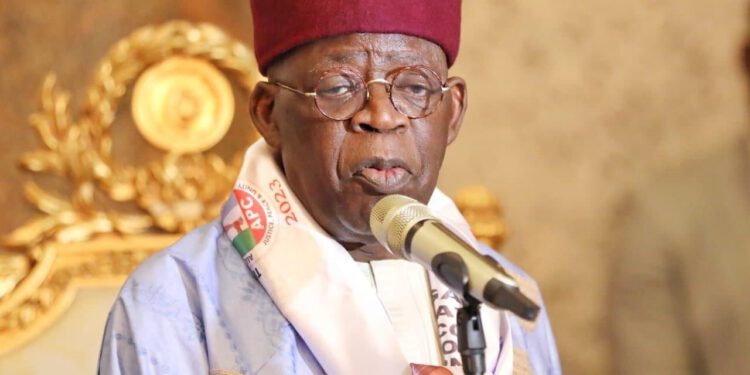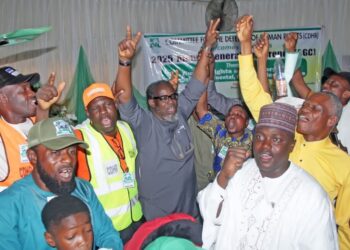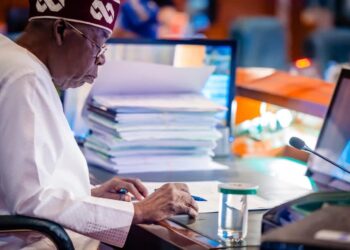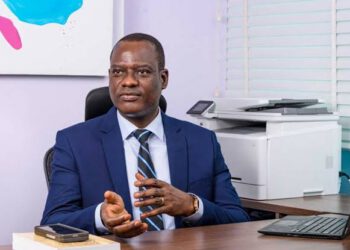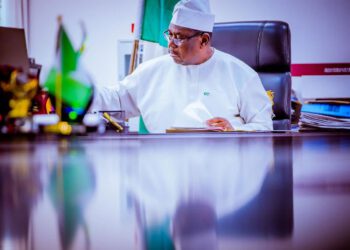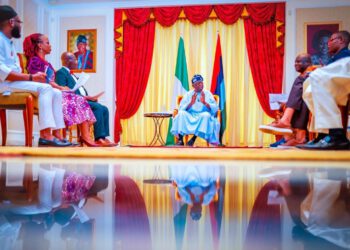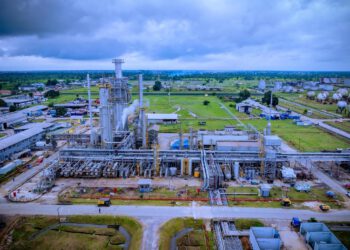The All Progressives Congress (APC) presidential primary may have come and gone but the Pandora Box of intrigues, cutthroat politicking, predictions, counter-permutations, and upsets that all characterized the contest linger on.
The emergence of former Lagos governor, Asiwaju Bola Ahmed Tinubu, proved political pundits, online and social media polls wrong. Like a soldier, he displayed gallantry by defeating all comers to win the presidential ticket of the party at the Eagle Square, Abuja.
Many congratulatory messages have continued to pour in for him. But in all of these, the former Lagos governor made a striking point saying Buhari showed that he is trustworthy by not endorsing any of the presidential hopefuls.
Recall the President had during an interview on Channels Television last year revealed that he actually had an anointed successor but he would not unveil the person for the fear that such an individual could be “eliminated.”
Buhari, last week also urged governors of the ruling party and other stakeholders to allow him to choose his successor. All of these birthed fears and issues between the North and the South.
But in the end, all of these controversies were laid to rest after an elective process was conducted. Tinubu said: “He (Buhari) promised the entire country and the world that he will build a legacy of transparency and consistency, the legacy of level playing ground for all the candidates, that he will be committed to democratic principles and values and he did so.
“He did not endorse anybody, he did not impose anybody, and he did not at any time attempt to tinker with the process of this election to favour one tribe or the other. He was steadfast, trustworthy, dependable, and a great leader.
“It is not my victory that is important, it is the process and management of that election that gave it to President Muhammadu Buhari,” Tinubu said.
Buhari in his response urged APC governors to work for the victory of Tinubu, saying the success story of the party at the 2015 and 2019 polls should be repeated in next year’s election.
APC National Chairman Abdullahi Adamu said, “Tinubu is the collective project of the party”.
The President, in a letter to Progressive Governors’ Forum (PGF) chairman, Kebbi State Governor Atiku Bagudu, described Wednesday’s shadow poll as the most competitive and peaceful in national history.
With his emergence as the party flagbearer, political observers argued that if any presidential election is held today, Tinubu, by the account of his political experience and antecedents, would emerge victorious.
Tinubu, reputed for his political shrewdness and unbeatable strategy, was the first in APC to openly declare his presidential interest. He reached out to delegates earlier than the others and covered more grounds. In all of the last-minute intrigues and horse-trading, The Nation had tipped Tinubu to win the presidential ticket of the party due to a number of factors including nationwide recognition, reach, structure, support, endorsements, mass appeal, track record as governor of Lagos State, rich experience in both the private and public sectors. Alas, the projection is vindicated.
With this strategic feat, Tinubu — the Asiwaju of Lagos, Jagaban Borgu, and “Lion” of Bourdillon — aptly fits into the description of the “last man standing” among his peers after the Fourth Republic was inaugurated 21 years ago.
Year after year from 1999 to this moment, Tinubu has remained a strong factor in defining the outcomes of elections not just as a kingmaker but as a regent.
Interestingly, Tinubu’s cult of followers keeps expanding. He has mentored politicians across the country, many of who became governors, senators, House of Representatives members, or were elected or appointed through his support.
His political allies especially the intimidating circle of experienced grassroots politicians, mobilisers of voters, formidable political network, and propensity for deal-making all contributed to Tinubu’s victory.
At the contest, many were greeted with the shock of bigwigs stepping down their aspirations for Tinubu. The immediate past Minister of Niger Delta, Senator Godswill Akpabio; former Governor of Ogun State, Senator Ibikunle Amosun; Ekiti State Governor, Dr. Kayode Fayemi; former Speaker of the House of Representatives, Hon. Dimeji Bankole; Governor of Jigawa State, Abubakar Badaru; senator representing Ondo North Senatorial District, Prof. Ajayi Boroffice, and Uju Ohanenye pledged their support to Tinubu.
In the end, Tinubu polled 1,271 votes to defeat 13 other presidential hopefuls, with Rotimi Amaechi, former minister of transportation, coming a very distant second after scoring 316. Vice-President Yemi Osinbajo got 235 while Senate President Ahmad Lawan, the proclaimed consensus candidate of Abdullahi Adamu, APC national chairman, polled 152.
The magnitude and depth of the celebration which greeted the announcement of Tinubu as the winner, explains the unifying influence which he has become on his party.
In writing the history of the hard-fought political battles and well-deserved electoral victory, Tinubu’s name would be engraved in the pages.
Tinubu will slug it out with Atiku Abubakar (Peoples Democratic Party; Dumebi Kachikwu (African Democratic Congress); Prince Malik Ado-Ibrahim (Young Progressives Party); Rabiu Musa Kwankwaso (New Nigeria Peoples’ Party) and Peter Obi of the Labour Party (LP).
Others are Prince Adewole Adeboye (Social Democratic Party (SDP); Omoyele Sowore (African Action Congress); Kola Abiola (Peoples’ Redemption Party); Peter Umeadi (All Progressives Grand Alliance); Dan Nwanyanwu (Zenith Labour Party); Christopher Imumolen (Accord Party) and Maj. Hamza Mustapha (Action Alliance).
As the countdown to 2023 begins — a year that many pundits have predicted to be a decisive year in the historical evolution of the Nigerian nation, it presents a remarkable opportunity for Nigerian citizens to make a critical decision.


